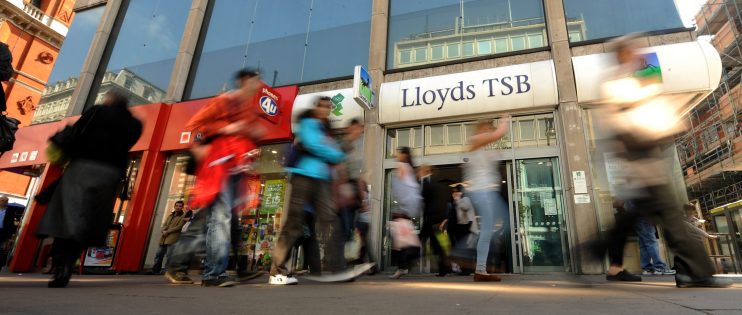Banks must engage with businesses on coronavirus loans or “be bypassed”, think tank says

The UK’s banks must engage with businesses seeking coronavirus support measures or “be bypassed” by the government, a new paper has found, as pressure grows on lenders to do more to support struggling companies.
The report, from think tank Policy Exchange, says that it is imperative that measures already announced by the government such as the business loan scheme for SMEs are being administered “efficiently”.
If not, it goes on to say, the government should step in with loans to protect companies under threat of closure due to cash shortages.
Economist and Policy Exchange fellow Gerard Lyons said: “Speed, scale and simplicity are of the utmost importance to follow through on the measures to date.
“In particular banks either must engage 100 per cent in the process or be bypassed with the government giving grants to firms to ensure they survive”.
In recent days there has been growing evidence that firms are struggling to access the government’s protections, with some saying that banks are pushing them towards their conventional lending products rather than the emergency loans.
The Federation of Master Builders (FMB) is the latest industry body to join calls for the government to address problems with the Coronavirus Business Interruption Loan Scheme (CBILS), with many small construction firms struggling to stay afloat.
According to a survey conducted by the lobby group, half of FMB members who have applied for the Coronavirus Interruption Loan Scheme (CBILS) have found the process either ‘somewhat’ or ‘very difficult’.
In addition, 10 per cent of FMB members who have applied for a loan have been rejected with the vast majority (84 per cent) still waiting to hear back from their bank.
Sign up to City A.M.’s Midday Update newsletter, delivered to your inbox every lunchtime
Tom Parsons, a director at building firm Olive & Umber, told City A.M. that since submitting an application for a loan a week ago he had heard nothing from Natwest.
He said that he had spent hours on the phone trying to get hold of a business advisor to no avail.
“In the worst case scenario”, Parsons said, “we might have to close our doors for good”.
He added that he had heard of other companies being charged up to 20 per cent APR on the loans, “which makes the whole thing unaffordable”.
He went on to say that there was a “huge amount of blurred lines when it came to the construction industry”, with the government not providing enough clarity as to the work that could continue during the crisis.
Daniel Rogerson, senior associate at law firm Primas, said that small firms were simply “falling through the cracks” when it came to the assistance:
“We’re finding that many businesses simply aren’t qualifying for the government’s Coronavirus Business Interruption Loan Scheme (CBILS), predominately by virtue of them not being considered ‘viable’ by the banks before the coronavirus crisis hit.
“I believe that the current caution being exercised was not what was intended by the government when they stated, over and over, that they would “do whatever it takes”.
The Treasury is reportedly mulling changes to the criteria for the loans and is considering scrapping measures that mean banks are required to assess whether companies are eligible for other funding products before allowing them to access the CBILS.